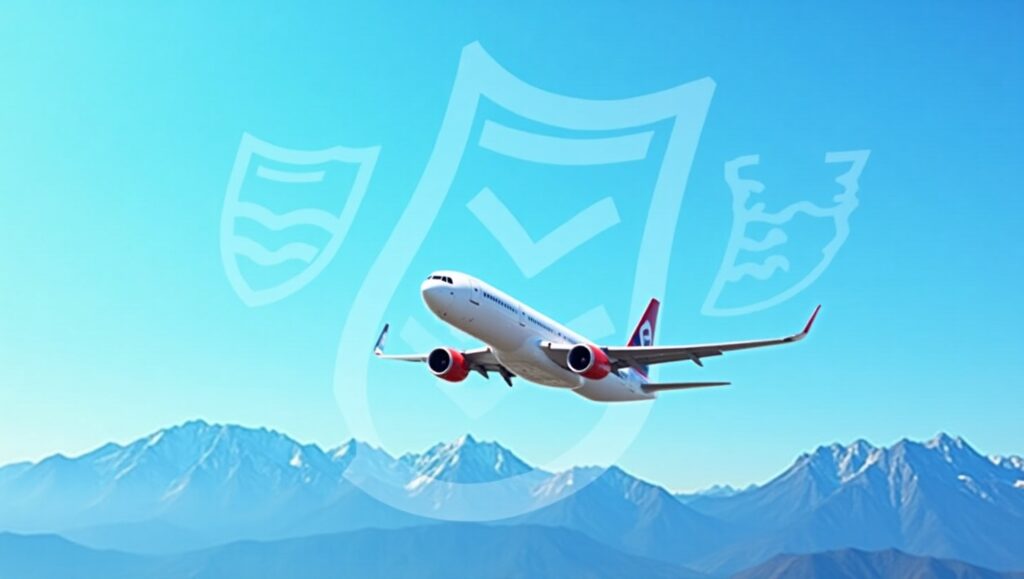In the aviation industry, safety is not just a priority – it’s an absolute necessity. As one of the most heavily regulated industries worldwide, aviation relies on comprehensive safety audits and certifications to ensure that airlines and regulatory bodies are meeting international standards. This is especially crucial in Nepal, where challenging flying conditions such as rugged terrain and unpredictable weather make aviation safety even more important.
The Role of Safety Audits in Aviation
A safety audit is a thorough evaluation of an airline’s operations, looking closely at everything from aircraft maintenance to management systems. These audits ensure that airlines comply with national and international safety regulations. In Nepal, safety audits are essential for identifying potential risks, improving safety practices, and ensuring compliance with the Civil Aviation Authority of Nepal (CAAN) and international organizations such as the International Civil Aviation Organization (ICAO) and the International Air Transport Association (IATA).
For example, Buddha Air, a leading airline in Nepal, has always made safety a top priority. In 2012, Buddha Air began working with Aviation & Marine Safety Solutions International (AvMaSSI), a well-known aviation safety consulting and auditing firm, to meet global safety standards. This partnership led to the successful completion of the AvMaSSI Operational Safety Audit in 2016. This audit evaluated critical areas such as flight operations, aircraft maintenance, and security management, ensuring Buddha Air adhered to international best practices.
The Importance of Certifications in Aviation Safety
Certifications are formal recognitions that an airline or aircraft meets certain safety standards. In Nepal, one of the most important certifications is the Air Operator Certificate (AOC), which is issued by CAAN. This certificate is required for airlines to operate commercial flights. To receive an AOC, airlines must meet stringent safety, operational, and maintenance standards, demonstrating their commitment to safe and reliable services.
Challenges in Nepal’s Aviation Industry
Despite progress in improving safety standards, Nepal’s aviation sector faces unique challenges. The country’s mountainous terrain presents inherent risks, as pilots must navigate some of the world’s most difficult flight paths. To address these challenges, specialized pilot training programs are essential. These programs are regularly updated to incorporate the latest safety techniques and practices.
In addition, infrastructure limitations in many of Nepal’s airports – particularly those in remote areas – create further safety concerns. Some airports lack advanced maintenance facilities and sophisticated air traffic control systems, making safe and efficient flight operations more challenging. The government has taken steps to address these issues, including upgrading runways and enhancing air traffic control systems.
Progress and Global Collaboration in Nepal’s Aviation Industry
Nepal’s aviation industry has made impressive strides in improving safety standards, thanks to a commitment to continuous improvement and collaboration with international aviation organizations. CAAN has adopted ICAO’s safety recommendations and conducts regular audits of domestic airlines to ensure they meet global standards. Increased cooperation with international aviation bodies has also helped Nepal’s aviation industry adopt best practices, leading to certifications that enhance its credibility worldwide.
The Future of Aviation Safety in Nepal
Looking to the future, Nepal’s focus will remain on improving aviation infrastructure, strengthening regulatory oversight, and further integrating global safety standards into local aviation practices. Buddha Air’s commitment to safety serves as an example for other airlines in the region, showing that it’s possible to overcome challenges and achieve the highest safety standards, even in the most demanding flying conditions.
Key Takeaways:
- Safety audits and certifications ensure that Nepal’s aviation industry meets both national and international standards.
- Buddha Air’s partnership with AvMaSSI and its success in operational safety audits demonstrate its commitment to global safety standards.
- Nepal’s challenging terrain and infrastructure limitations require continuous improvement in pilot training and airport facilities.
- Ongoing collaboration with international organizations helps strengthen safety practices and enhance Nepal’s aviation reputation.
By prioritizing safety and staying aligned with global standards, Nepal’s aviation industry is progressing toward a safer and more reliable future.

